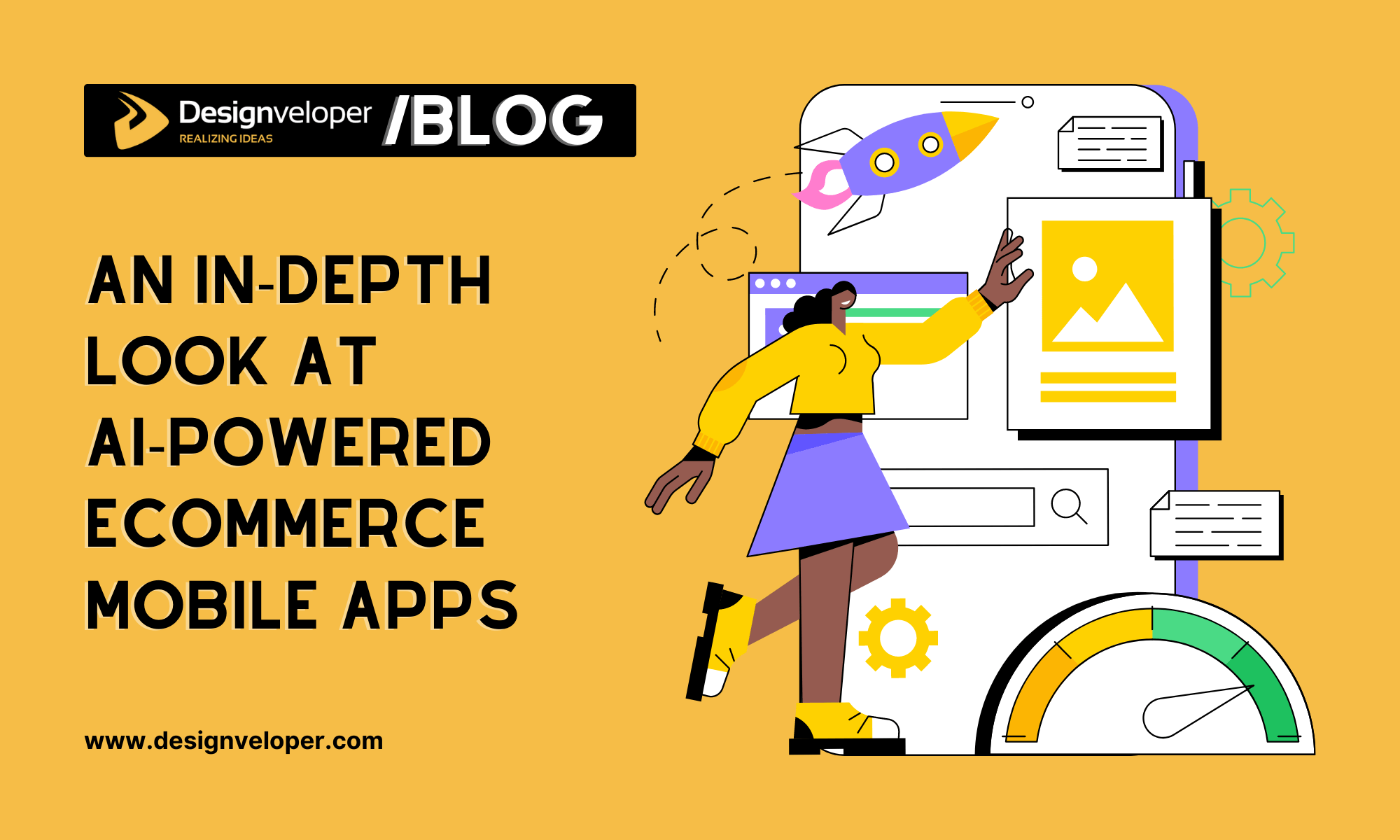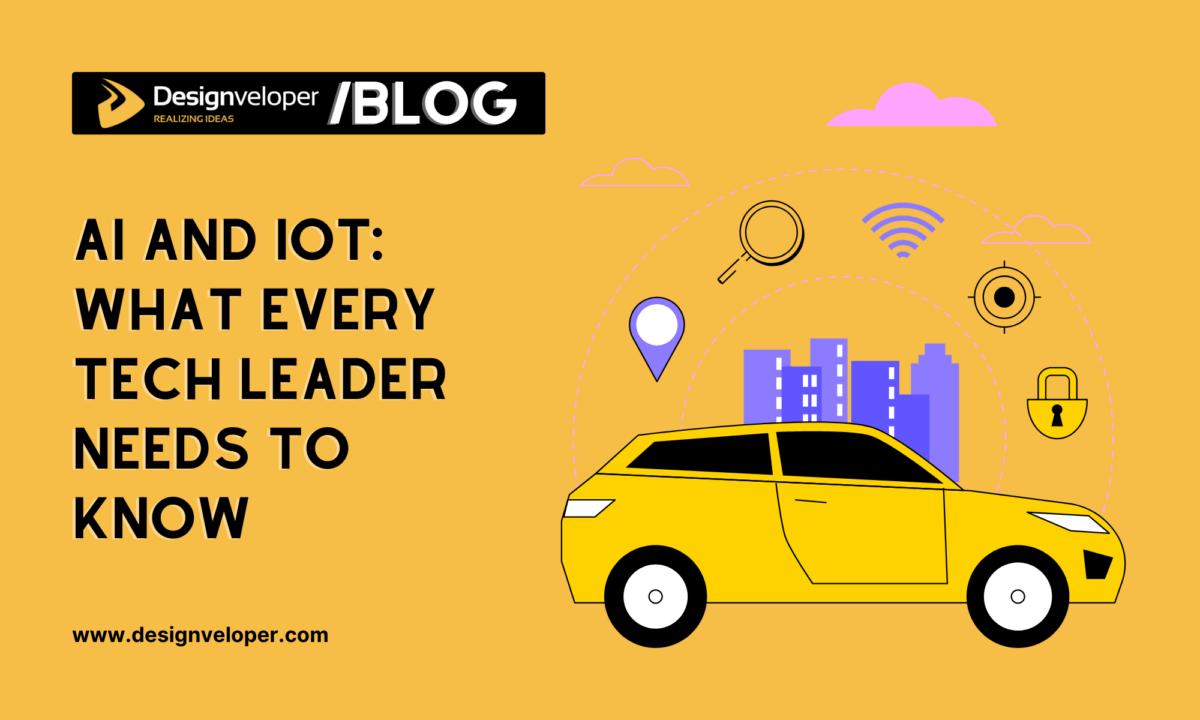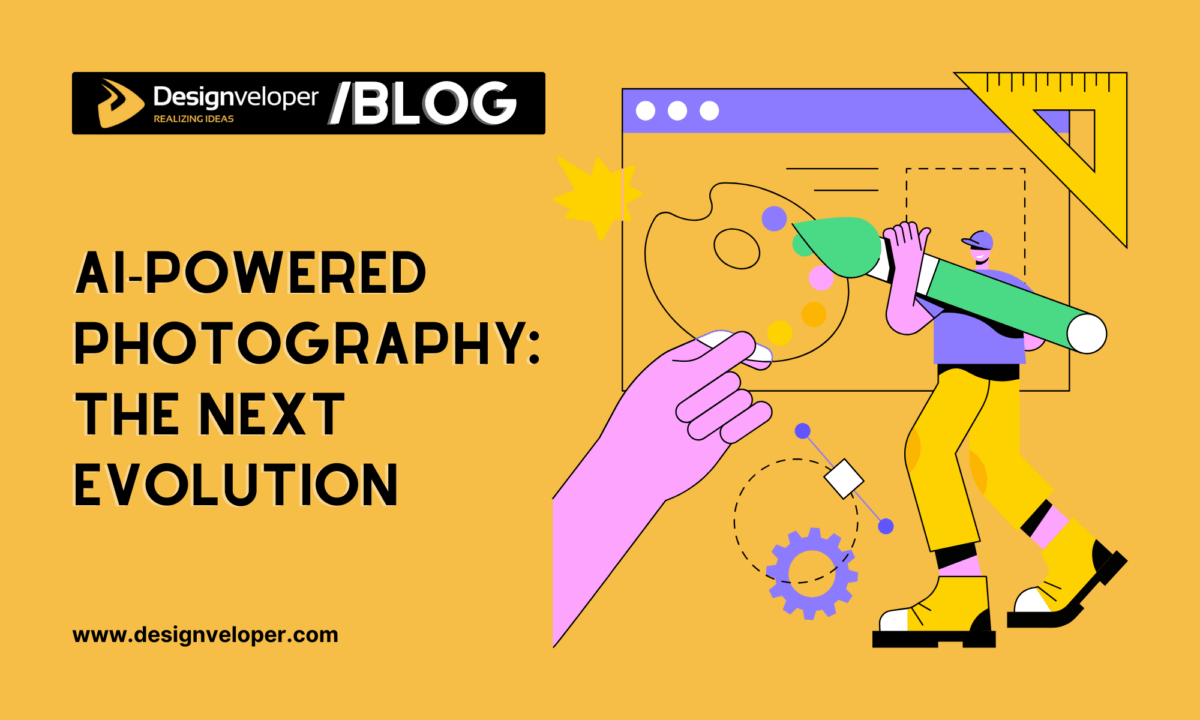
We’ve seen a dramatic shift from traditional brick-and-mortar stores to online shopping, which has driven the evolution of eCommerce. Due to the growing use of mobile devices and advanced techs like AI, eCommerce is set to grow significantly at an expected CAGR of 9.49% from 2024 to 2029. This growth underscores a key prediction: the future of shopping lies in AI-powered eCommerce mobile apps.
If you want to dig further into this topic, this article is the right place for you. Here, we’ll explain the importance of Artificial Intelligence in eCommerce mobile apps and which apps stand out today. Are you ready? Let’s discover!
Understand AI-Powered eCommerce Mobile Apps
An AI-powered eCommerce mobile app is a type of app that uses AI to make online shopping easier. But how? Let’s explore the top five use cases, together with ten outstanding examples, of AI in eCommerce.
5 Applications of AI in eCommerce Mobile Apps
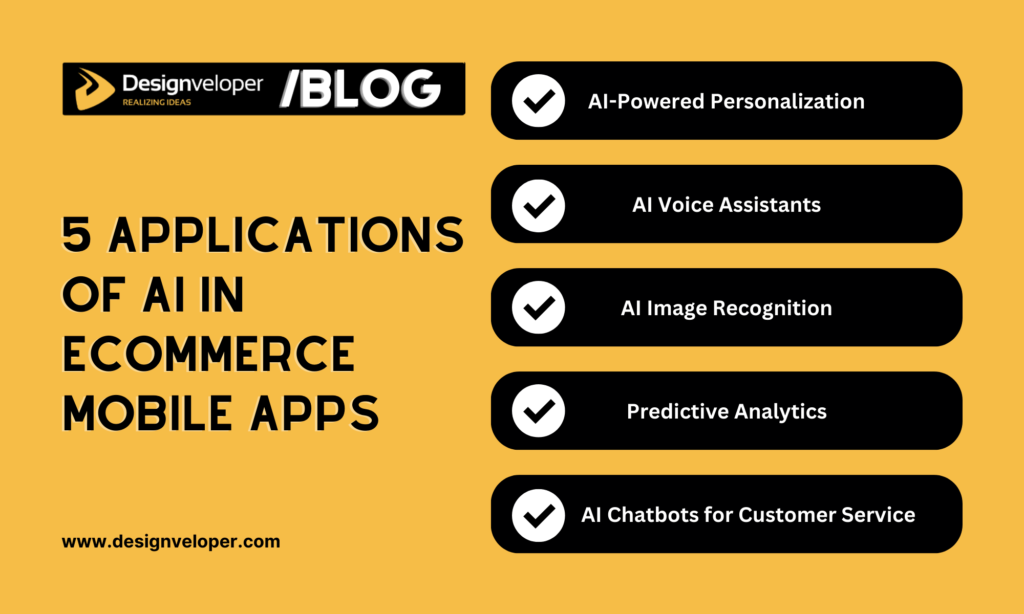
First, let’s discover the top five use cases of AI in eCommerce:
1. AI-Powered Personalization
Do you ever wondered by eCommerce apps like Amazon can accurately “guess” what you want and showcase that product in your feed? It’s thanks to AI. In particular, AI will collect and analyze your information, including demographics, browsing habits, and shopping activities. This way, AI can understand what you like or look for. Using this information, AI then gives you a personalized product recommendation. This will enhance your shopping experience.
Further, your eCommerce business can use this collected data to get to know your customers better. Then, you can improve services, set more proper prices, and devise more effective strategies to retain and attract customers.
2. AI Voice Assistants
The global market for voice assistants is predicted to gain USD 54.83 billion by 2033. This exhibits an impressive CAGR of 30.49% from 2023 to 2033. With the support of AI, these voice helpers are becoming increasingly popular in online stores. They accordingly let you search for things by talking like a human salesperson.
Further, you can ask product questions and the AI helper will give you the correct answers. These AI helpers can also remember what you like and keep track of what you’ve previously bought. Knowing your history makes it easy for them to find things for you without you having to search for each item.
Recommended reading: Top 5 Best eCommerce Website Development Companies in 2023
3. AI Image Recognition
AI image recognition is a technology that online stores use to know what products are in pictures. People can take photos of things they want to buy, and the store’s app will match it to the correct item. The image recognition market will reach a value of USD 13.72 billion in 2024. This figure continues to expand at an annual growth rate of 8.71% during the following six years. Why? It’s because this tech saves time. Accordingly, people don’t have to look through many products. It also helps the store ensure the products are genuine and protect their profits.
4. Predictive Analytics
Predictive analytics is a technology that uses AI algorithms to predict customer behavior. Mobile shopping apps can use data from customers to predict what they will buy. This data helps businesses understand their customers better and give them personalized experiences. Also, companies can use this information to adjust prices based on how much people want to buy.
Recommended reading: The Future of Web Development: Exploring the Power of Web3 and Blockchain
5. AI Chatbots for Customer Service
Online shopping apps use AI-powered assistants called chatbots to help customers. They can answer questions without needing a person. These chatbots use a way of understanding language to get what customers are asking and give the correct answers or solutions. AI-powered chatbots are very helpful when a lot of people need help at the same time. They can handle a lot of questions. Chatbots help businesses save time and money while providing good customer service.
Recommended reading: The Role of Mobile-Responsive Design in Email Marketing
5 Examples of AI-Powered eCommerce Mobile Apps
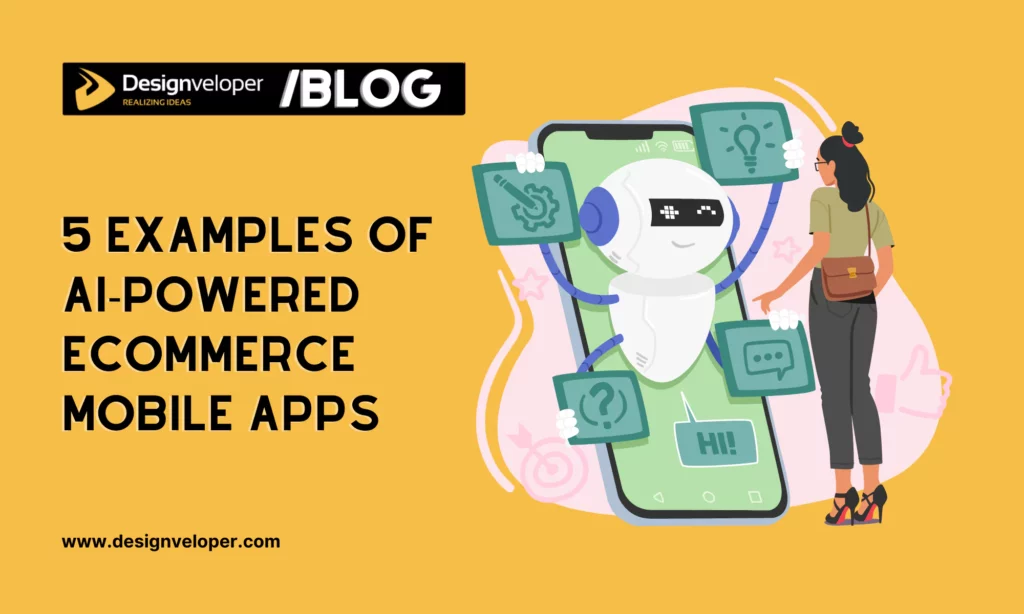
Now, let’s take a quick look at the best AI-powered eCommerce mobile apps today:
1. Amazon Alexa
Amazon Alexa is an AI voice assistant used by Amazon. It uses NLP to understand customers and give them the answers they need. It can also help with creating shopping lists and tracking orders.
2. Walmart App
The Walmart app uses AI to determine customers’ liking and give them better recommendations. It also uses predictive analytics to price products the right way. Plus, it has an AI chatbot that can answer customer questions and help solve their problems.
3. Target App
The Target app uses AI to recognize products from pictures and match them with things in its database. It also has a chatbot powered by AI that can help customers with their questions without talking to someone. This makes it easy for customers to find what they’re looking for without searching for each item.
4. Sephora App
The Sephora app uses AI to understand customers’ wants and give them customized offers. It has a chatbot that answers questions too. Plus, it uses predictive analytics to ensure prices are suitable for people’s wants so businesses can make more money.
5. Alibaba Alipay
Alipay is an AI payment platform by Alibaba. It makes buying things as easy as a few clicks. It helps manage finances more too. Plus, AI stops criminals from accessing customer data, making transactions secure.
FURTHER READING: |
1. How to Use AI? A 10-Step Guide for Effective and Ethical Use |
2. How Does AI Affect Our Daily Lives? - Top 10 Goods & Bads |
3. Will AI Replace Programmers? Friend or Foe? |
Benefits of AI in eCommerce
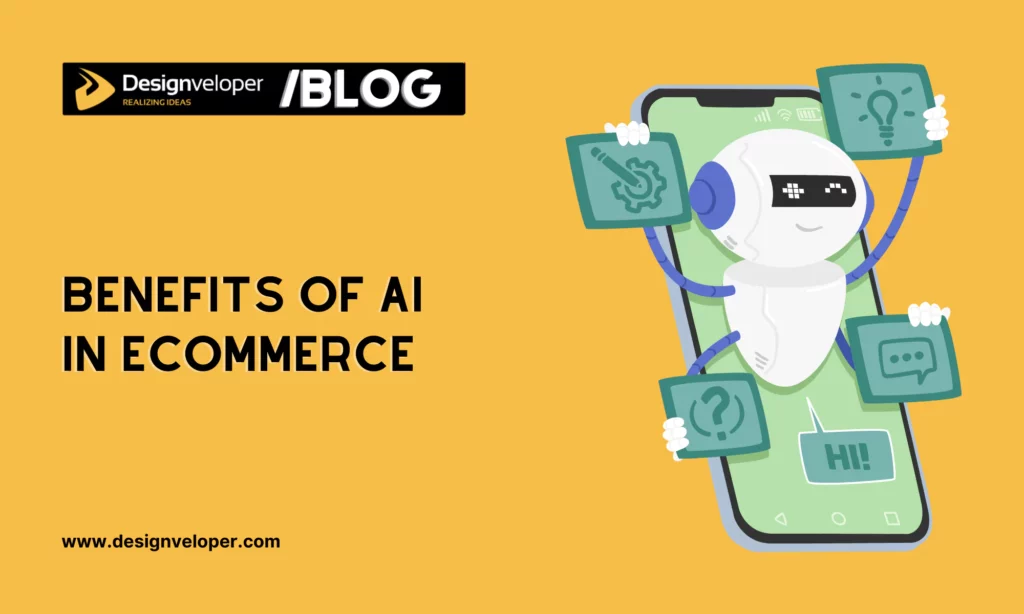
Many people consider AI as the future technology of shopping. As such, this tech has gradually advanced the way eCommerce mobile apps work and brought many immense benefits. These benefits include:
Recommended reading: Ecommerce Website Image: 10 Tips to Optimize
Improved Customer Experience
First of all, AI helps your business make customers happier. It makes shopping better by understanding what customers like and giving them personalized experiences. Also, AI-powered virtual assistants can answer their questions and solve their problems. This makes your customers satisfied by responding quickly and offering them special offers.
Increase in Sales & Conversions
The future of shopping lies in AI as your business can make more money by suggesting better products and setting reasonable prices. Various eCommerce mobile apps also integrate advanced analytics powered by AI to understand customers’ wants and give them special deals that will make them buy. This can help your business sell more and make more profits.
Reduced Costs & Enhanced Security
AI-enabled mobile shopping apps can help save money by cutting back on customer service staff. In other words, there’s no need to hire additional agents to answer the questions of customers 24/7.
Further, various apps use AI to identify and prevent fraud from attacking your business’s assets. AI-powered security measures detects suspicious activity and transactions, keeping customer data safe from cybercriminals.
FURTHER READING: |
1. Designing the Perfect E-commerce Marketing Stack for Conversion Optimization |
2. B2B eCommerce Platforms and 10 Important Features |
3. Ecommerce Website Image: 10 Tips to Optimize |
Challenges of AI-Powered eCommerce Platforms
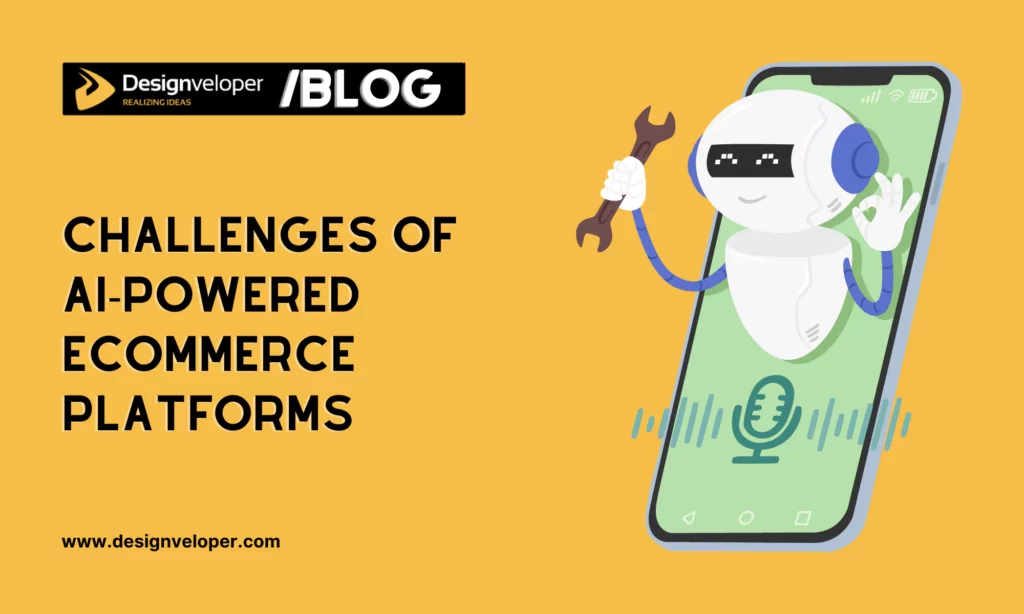
Once you’ve understood the visible benefits of AI in eCommerce, one question arises: does AI pose any threats? The answer is yes. Let’s explore some challenges you might encounter when using AI-powered eCommerce mobile apps:
Data Privacy and Security
We already said that AI can enhance security. But on the flip side, AI can affect data privacy and security if improperly used. This is because this tech requires the collection of customer data. Without permission or legitimate purpose, customer data can be mishandled. This leads to privacy breaches or unauthorized access. Worse, this misuse could expose sensitive information, erode trust, and even result in legal consequences.
Therefore, your business has to implement strict data protection policies and ensure transparency. This will balance AI’s benefits with safeguarding customer privacy.
Lack of Standardization
Without established standards for AI-powered eCommerce apps, you business can struggle to choose the right tech and integrate them effectively. Standards provide a clear framework, helping you make informed decisions about which AI tools to adopt and how to implement. By following these standards, your business can stay updated with the latest tech advancements. This will ensure your eCommerce app remain competitive and efficient.
Dependence on Large Amounts of Data
AI-powered eCommerce apps need a lot of data to understand customers and provide customized experiences. Accordingly, your business needs access to the correct data or resources to make your AI function well. You must also always keep their data accurate and up-to-date, so you can get the right results.
The Future of Shopping: AI in eCommerce
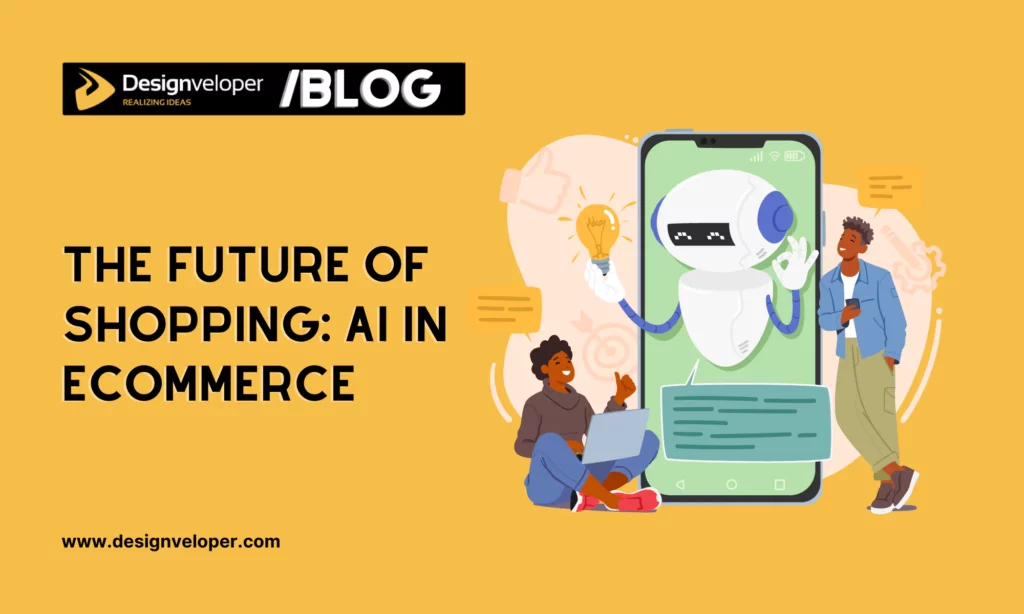
Despite those limitations, we still see the future of shopping will be significantly shaped by AI. Along with the growing adoption of AI in eCommerce, we also witness the following trends emerging and developing:
1. Advancements in Technology
AI is getting more advanced. Especially with the birth of generative AI, eCommerce mobile apps can be better at understanding customer needs. Companies will accordingly have access to better data analysis tools, which help make smarter decisions.
2. AI Adopted in eCommerce Software Development Services
The demand for AI in eCommerce is increasingly growing. More companies recognize the rising demand and are actively integrating AI into eCommerce solutions for their clients.
For example, at Designveloper, we provide top-notch AI chatbot integration services to revolutionize your customer engagement. Our advanced solutions seamlessly integrate AI technologies into your existing platforms. This helps enhance user experience and streamline communication processes.
3. Impact on the Workforce
AI apps can replace manual work. This means your business can save money while operating more productively. Further, AI also helps your company automate tasks, hence giving better customer service.
4. Potential Ethical Concerns
As we already mentioned, AI apps might misuse customer data. So, your business must understand the ethical risks and ensure data is safe. Moreover, your business must also follow all laws and regulations to protect customer privacy.
Conclusion
AI-powered apps are becoming more popular. They use AI technologies like NLP, predictive analytics, and image recognition to understand user preferences and give personalized services. That’s why these AI-powered eCommerce apps are often considered to push the future of shopping to a new level. However, AI can pose some threats. This needs your business to be more careful and have more thorough plans to use AI ethically and effectively. If you have any idea about AI-powered eCommerce apps and want to realize it, contact us and discuss!






Read more topics




























